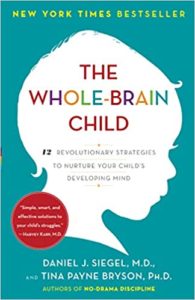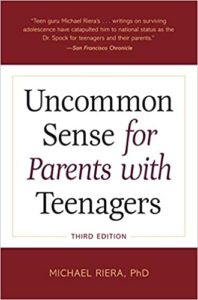- View All
- Topics
- Search
Topics
- 25th Anniversary
- Alumni
- Book Recommendations
- Child Tax Credit
- Coding
- College Admissions
- College Counseling
- Community
- Cultural Learning
- Curriculum
- Distance Learning
- Earth Day
- Engineering
- Fundraising
- Giving
- graduates
- High School
- International Women's Day
- Mandarin Bilingual Preschool
- Mandarin Language Programs
- Mindful Parenting
- Mindfulness
- National Women's History Month
- Parenting
- Parenting Support
- Poetry
- Potty Training
- Preparing for College
- Preparing for Preschool
- Reading
- STEAM
- STEM
- Student Awards
- Student Spotlight
- Teacher
- Teacher Awards
Blog Archive
- 2025 (3)
-
2024 (6)
- December (1)
- May (1)
-
March (3)
- Stratford Preparatory Blackford Middle and High School Students Recognized at Multiple Competitions and Events in March
- Stratford Fremont and Pleasanton Middle School Students Bring Home 46 Science Fair Awards at the Alameda Science and Engineering Fair!
- Stratford Mandarin Language Students Win Multiple National Chinese Culture Competitions!
- January (1)
-
2023 (5)
- September (1)
- June (1)
- April (1)
- February (2)
-
2022 (11)
- November (1)
- August (1)
- July (1)
- June (1)
- May (1)
- March (2)
- February (3)
- January (1)
-
2021 (22)
- December (2)
- November (1)
- October (2)
- September (1)
- August (2)
- July (2)
- June (3)
- May (1)
- April (3)
-
March (4)
- What Families Need to Know About Child Care Benefits in the “American Rescue Plan Act”
- Inside Out: Fostering Emotional Intelligence (EI) in your Child
- Celebrating Women’s Contributions to History One Book at a Time
- Stratford School Congratulates Our 2021 Future City Engineering Competition Participants and Winners!
- February (1)
-
2020 (9)
- December (1)
- September (1)
- August (1)
- May (1)
- April (3)
- March (2)


6 Parenting Books to Help You Keep Calm and Carrying On
While it is true that our children do not come with a handbook, thankfully there are insightful experts who have written their own books to help us more successfully manage the twists and turns of our parenting journey. With a limited amount of time in our day, the question is … which book do we choose? As each child and family situation is unique, it is important to look for something that speaks to the needs of your child, your family dynamic, and your parenting style.
We have curated a short list of recommended parenting books that include works from some of our Parent Speaker Series experts, along with hand-picked selections from our Stratford School leaders. For parents of teens or tweens, Jeanne Huybrechts, our Chief Academic Officer who spent 28 years as the Head of School for Harvard Westlake, shares two of her go-to books that specifically address the unique attributes and challenges of the teenage years.
Book Recommendations for Preschool – Elementary Years
Getting to Calm, The Early Years, Laura S. Kastner, Ph.D.
Positive Discipline for Preschoolers, Revised 4th Edition: For Their Early Years — Raising Children Who Are Responsible, Respectful, and Resourceful, Jane Nelson Ed. D., Cheryl Erwin M.A., et al.
Positive Discipline speakers have been a consistent parent and educator favorite at Stratford. The recommendation for this book comes from Judy Burbank, Head of School at our Altadena campus, as an insightful resource for both parents and educators alike. The book is easy to read and uses real life examples to illustrate how to practice positive discipline, emphasizing mutual respect, in your everyday life. The most recent edition includes information from the latest research on neurobiology, diet and exercise, gender differences and behavior, the importance of early relationships and parenting, and new approaches to parenting in the age of mass media. In addition, this book offers new information on reducing anxiety and helping children feel safe in troubled times. Included are practical solutions for how to avoid power struggles, learn non punitive discipline techniques, teach positive social and life skills, and set up a plan to resolve issues. This book is a follow up to the original Positive Parenting handbook written by Jane Nelsen Positive Discipline: The Classic Guide to Helping Children Develop Self-Discipline, Responsibility, Cooperation, and Problem-Solving Skills.
Raising an Organized Child: 5 Steps to Boost Independence, Ease Frustration, and Promote Confidence, Damon Korb, MD, FAAP
The Whole-Brain Child: 12 Revolutionary Strategies to Nurture Your Child’s Developing Mind, Daniel J. Siegel, M.D, and Tina Payne Bryson, Ph.D.

A New York Times best seller, this book is considered to be one of the standards for understanding the neuroscience in growing children. It is comprehensive, practical, and highly praised by countless educators, parents, and fellow parenting experts alike. Incorporating the latest science about how exactly a child’s brain works, with the right brain leading the still “under-construction” left brain, the authors offer twelve key strategies for fostering “healthy brain development, leading to calmer, happier children.” Parents learn the science behind why their child has outbursts and how they can turn it around in a compassionate and clear manner, helping their child to manage their own emotions and become more balanced over time. A win-win for parents and children. Another highly recommended title from Dr. Siegel is No-Drama Discipline: The Whole-Brain Way to Calm the Chaos and Nurture Your Child’s Developing Mind.
Book Recommendations for the Teenage Years
How to Talk So Kids Will Listen and Listen So Kids Will Talk, Adele Faber and Elaine Mazlish
Uncommon Sense for Parents with Teenagers, Michael Riera, Ph.D.
Compared to what has been written for parents of infants, toddlers and early-grades children, the library for parents of adolescents is relatively limited. Jeanne Huybrechts notes that is “unfortunate because adolescents need as much ‘parenting’ as their younger siblings, AND the job of parenting adolescents comes with its own set of challenges and competencies to be mastered.” As a high school principal, Jeanne recommended the following two books to scores of parents. Here, she explains why she has returned to them so often for guidance and inspiration.
How to Talk So Kids Will Listen and Listen So Kids Will Talk was not written expressly for parents of teenagers but its focus on communication – and highlighting the “listening” part – serves them well. The chapter entitled “Encouraging Autonomy” speaks to the aspiration we have for all children – that is to help them become independent individuals who will one day be able to function on their own. It is a central tension in all parent-adolescent relationships. Speaking to that goal, the authors identify “steps to autonomy,” and suggest that parents back away from their natural tendency to answer all questions and offer solutions to every problem in favor of a communication style that builds children’s capacity to make sound decisions and solve their own problems. The book became a bestseller when it was first published forty years ago. That it is still in print – along with several offshoot listen/talk books by the same authors – is testament to its readability and broad applicability. After all, who among us doesn’t need to listen more – and better?
Mike Riera’s professional work has focused almost exclusively on teenagers and young adults, middle school through college, first as a psychologist, then as a school head. Recognizing the relative dearth of books for parents of teenagers, he wrote Uncommon Sense for Parents with Teenagers to “replace the isolation, silence, and fear that accompany parenting during this period with optimism and hope.” The book is thoroughly grounded in research on adolescent development and written in a style that is down-to-earth and practical. The first three chapters are background on adolescence, including predictable issues that arise in each high school grad e, 9-12. Then the book is organized as a set of responses to questions commonly asked by parents, each answer accompanied by concrete examples, each ringing with the authenticity that comes from a practitioner’s pen. Through-lines include the importance of good communication and how parents of teenagers can, over time, shift their role from “manager” to “consultant,” guiding their children toward self-confident autonomy.
e, 9-12. Then the book is organized as a set of responses to questions commonly asked by parents, each answer accompanied by concrete examples, each ringing with the authenticity that comes from a practitioner’s pen. Through-lines include the importance of good communication and how parents of teenagers can, over time, shift their role from “manager” to “consultant,” guiding their children toward self-confident autonomy.
For further parenting support and inspiration, join us for an upcoming Virtual Parent Speaker event. Click here for a list of our upcoming events. All events are FREE with registration!